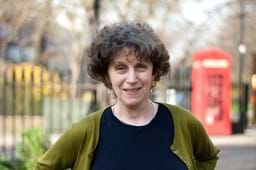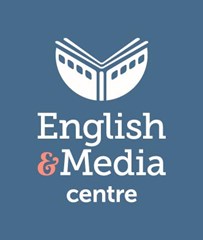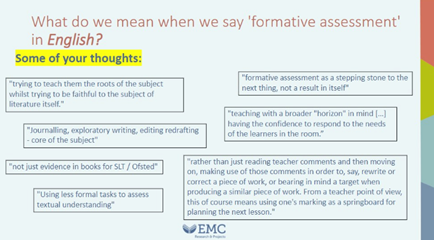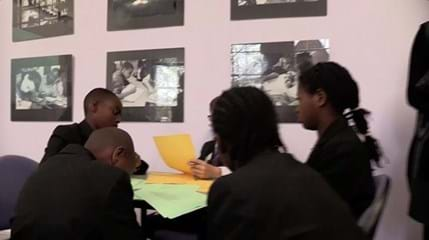Great Expectations
- Dickens was writing in the 19th century.
- Pip’s sister was called Mrs Joe Gargery.
- Dickens wrote his novels in instalments as weekly serials. You can see that in the way the chapters are structured and the points of suspense that make you want to read the next instalment.
- Great Expectations is a rites of passage novel – a novel showing the development of a character from childhood to adulthood. Rites of passage novels are often stories of children learning hard lessons from their experiences.
- Dickens is particularly well known for his ability to create characters who are larger than life, exaggerated figures (called caricatures), as well as more realistic characters.
- Dickens’ novels were usually read aloud, rather than read silently. That influences the style of writing, including the sentence structure and the amount of dialogue.
- Dickens is well known for his descriptions of London life, particularly the criminal or dark sides of life. He wanted to use storytelling to tell people about life for the poor, the downtrodden and people on the edges of society.
- Dickens’ characters are often thought to be the most important and successful element in his novels. Claire Tomalin has described him as the greatest creator of character of all time. However, some critics, including very famous writers like Virginia Woolf and Oscar Wilde accused Dickens of being too sentimental and presenting people unrealistically, as villains or angels. Another very famous novelist, Henry James, called his novels ‘loose baggy monsters.’ Which of these critics do you agree with most?
- Pip ended up discovering that his good fortune came from the criminal Magwitch.
- Dickens was the most popular novelist of his time and was hugely famous. He did readings in public.
All of these ten pieces of information are ‘knowledge’. All contain facts. All are about Dickens, a novelist often regarded as vital to instilling knowledge of the ‘classics’ or the ‘canon’, a highly favoured writer for those who believe in imparting significant cultural capital to all pupils. Assuming that teaching Dickens is a valuable thing to do (as few would dispute, whether crudely labelled as ‘traditionalists’ or ‘progressives’), the question is, what knowledge and facts about Dickens are useful to teach? Is all knowledge of equal value in an English curriculum?
I would argue that some of these bits of knowledge are hugely more significant and useful than others. They teach students about Dickens’ distinctiveness as a novelist, teach significant ‘knowledge’ about how narratives work, about character and characterisation, about how Dickens’ texts were produced and what difference this made to the writing, how they fit within their generic and cultural context. Other bits of ‘knowledge’ are disconnected ‘facts’ that don’t open up the door to wider knowledge, that can’t be used to consider new texts or other authors, that don’t form a web of knowledge that can be used and adapted or build a sense of how literature works. Some of the ten pieces of knowledge encourage thought, reflection, understanding; others are more like trivial pursuits – a thing you know and could answer a question on in Mastermind, or University Challenge, or a pub quiz, but which you couldn’t build upon. The ‘door opening’ knowledge, of course, isn’t just pure knowledge. It quickly blurs into something that could also be called ‘skills’. Because of the fact that this kind of knowledge is about how texts work, and about the key questions that literary studies is interested in asking and answering, then it becomes a skill for future study. If you know that Dickens creates characters who are caricatures and you understand what that means, then when you read about Mrs Bennet in Pride and Prejudice, or you weigh up the ways in which Charlotte Bronte presents Mrs Reed in Jane Eyre, you are able to make use of that knowledge. It is neither solely skill, nor solely knowledge to decide that there are elements of caricature in these characterisations – it is both. Equally, if you’ve thought about character and caricature, you may be able to try out some of the techniques you’ve learned about in your own story writing, again a blend of knowledge and skill.
Knowledge of the social and historical context of the times may be needed to allow students to engage with the world of the novel but this is not important ‘English’ knowledge in its own right – only valuable for how it can be applied in an illuminating way to the text itself. Even at KS3, keeping the text at the centre of discussions of context seems crucial, coupled with a recognition that the text itself often provides much of its own context. This avoids the risk of English becoming mistaken for history, with that history, at worst, becoming a grossly generalised and watered down version. An approach to contextual knowledge at KS3 that keeps the text at the centre of the discussion will be of immense benefit in teaching pupils an approach to contextual knowledge that avoids all the problems endlessly reported by examiners at GCSE and A Level. So, to continue with the Great Expectations example, it might be that taking an extract from an episode that introduces Magwitch, asking pupils to choose one of three or four bits of contextual information or images that seem to illuminate that extract and justify their choice is a better approach than a stand-alone lesson all about Victorian England, poverty, wealth and criminality in Victorian England. That’s history!
In the debates about knowledge versus skills, or the drive towards a knowledge curriculum, there seems to have been a surprising lack of discussion about what exactly we mean by valuable knowledge in an English curriculum. In terms of Literature, as the Great Expectations example hopefully reveals, some kinds of knowledge are much more important than others:
- Knowledge about how literary texts ‘work’. This means that English shouldn’t be pretending to be another subject, like History, or Sociology and doing it badly. English knowledge has to be about the nature of literary texts, so needs to focus on ideas like characterisation, how narrative works (or how non-fiction, poetry or drama work).
- Knowledge about how texts were received in their own period, as well as in our own times. (Why Dickens was popular in his own times, why he has the reputation he has now.)
- Knowledge about how different readers approach the texts. Why do highly respected writers like Virginia Woolf , Henry James and Claire Tomalin take such radically different views of the same writer and his craft? How might individuals read texts in different but equally valid ways?
- Knowledge of the historical or literary context of a text that genuinely throws light upon the text itself.
- Knowledge of what questions and ideas are central to English studies at school and beyond, of what it means to study a text. This knowledge allows pupils to learn how to read, think and write critically and with independence, and discover what it means to be a student of English.
These kinds of knowledge are also genuinely part of a curriculum that shows progression – the development of a set of skills and knowledge that will lead students seamlessly from KS3 into KS4, on into A Level and potentially beyond into English studies in Higher Education. Tell a university lecturer at a Russell Group university that your students understand about caricature and that will seem like a recognisable bit of literary knowledge. Tell them that they know the name of Pip’s sister, or what happened to Magwitch and they’ll, quite rightly, think that you’ve got the wrong end of the educational stick.
I would argue that Great Expectations can be taught at KS3. I’d argue that knowledge is important. But I’d also argue that a supposedly knowledge-based curriculum that takes a trivial pursuits approach to ‘facts’ fails to engage with what’s distinctive and important about English literary study. Pupils at KS3 are perfectly capable of grappling with the deeper, more significant aspects of the subject. That’s what we should be encouraging them to do.




